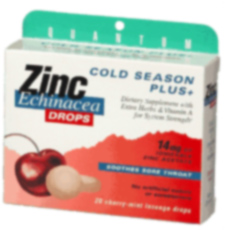
A US analysis of 14 studies on the effectiveness of Zinc lozenges from the last 20 years found fault with 10 of the studies.
The research was performed by medical student Thomas Caruso of Stanford University School of Medicine with the direction of Dr. Gwaltney, a professor of internal medicine, emeritus, at the University Of Virginia School Of Medicine, and with the assistance of Charles Prober, MD, also at Stanford.
The study found that out of the four remaining studies, three reported no therapeutic effect from zinc lozenges or nasal spray and one study even reported positive results from zinc nasal gel.
Gwaltney said, “The best scientific evidence available indicates that zinc lozenges are not effective in treating colds.â€
In 1984, the first study reporting that zinc lozenges effectively reduced the duration of the common cold was published. Many other studies followed, some seeming to support the idea of zinc either lessening symptoms or length of illness and some finding no effect.
For this study, the authors sorted out 105 studies of zinc and the common cold and extracted the 14 randomized, placebo-controlled studies, the type of study that might provide the strongest evidence for or against zinc’s usefulness in cold-relief.
They found major errors in 10 of the studies, errors that may have invalidated the results. The most frequently found problem was the lack of an ‘intent to treat’ analysis, which ensures that data for all subjects will be used regardless of whether or not they complete the trial. Other problems found in the studies included lack of a quantifiable hypothesis or sample sizes too small to produce statistically valid findings.
Chronic zinc intake of greater than 40 mg/day can lead to malfunctioning of the immune system and chronic fatigue. Various brands of lozenges have between 5 and 24 mg of zinc in each lozenge, Gwaltney said.
‘Since less information is available on the intranasal approach, additional well-designed studies of intranasal zinc spray or zinc-treated nasal swabs should be performed,’ said Dr. Gwaltney.
